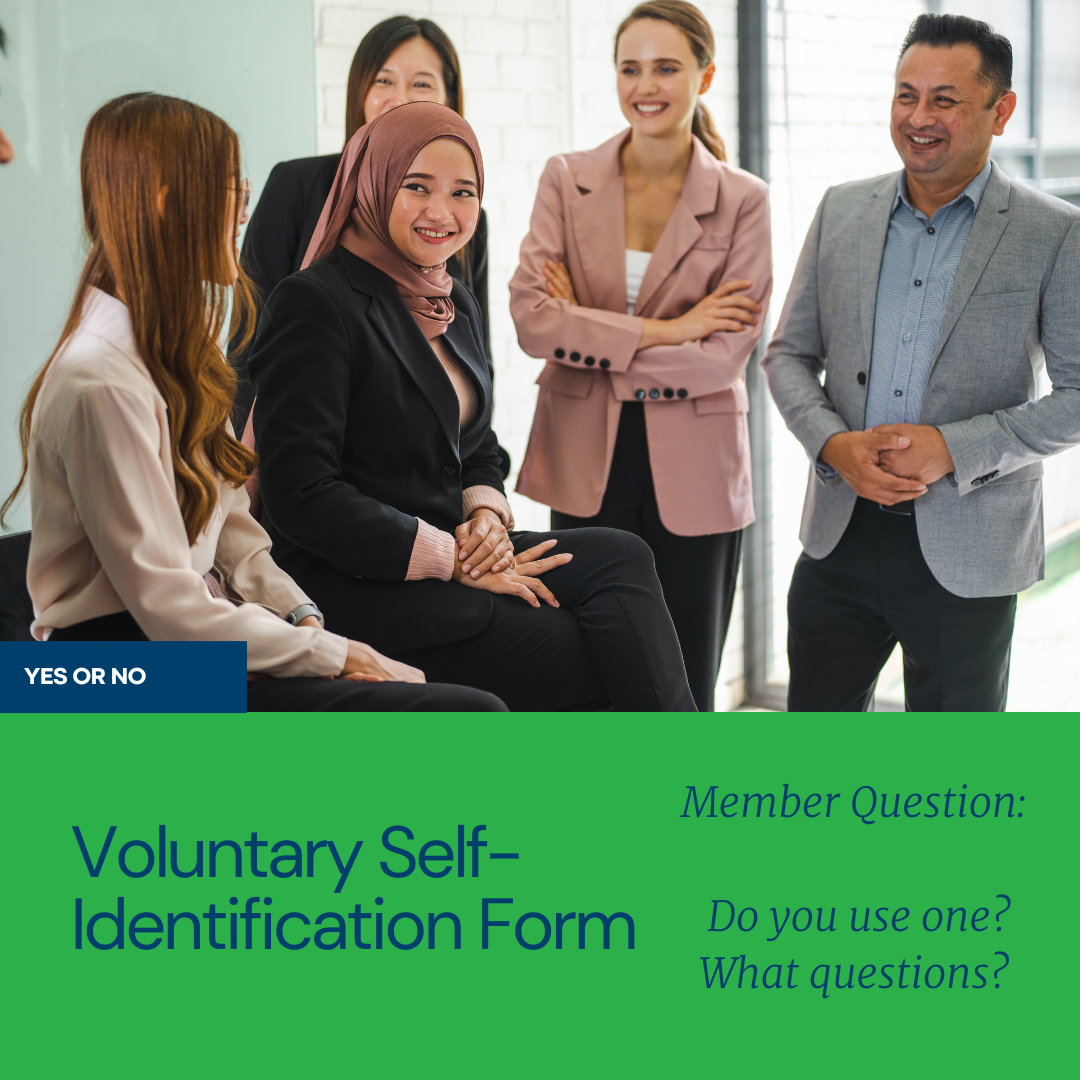Voluntary Self-Identification Form
Does your volunteer application include a “voluntary self-identification form” to collect demographic, economic, cultural, and social information? Is it damaging your recruitment efforts? Maybe it is helping? Was it there before you arrived? This is the case for one such Volunteer Engagement Professional, who has a few questions. While holding one VEP’s confidentiality, we agree these are valuable questions and our discussion might spark more interest.
Why the Voluntary Self- Identification Form?
Congress established the U.S. Equal Employment Opportunity Commission (EEOC) to enforce Title VII of the Civil Rights Act of 1964. The EEO compliance effort may have birthed the Voluntary Self-identification (VSI) form. Many nonprofit agencies adopted the form over the years as part of federal contract compliance, representing efforts of non-discrimination in hiring practices. The Society of Human Resources Managers has also adopted this form, and variations of this form as a standard of practice. General rules to ensure compliance with hiring practices should carry over to best practices in volunteer engagement screening. This includes:
- The form is distinct and stands alone from all other application information (no back to back printing).
- The form is entirely voluntary.
- It has no bearing on screening or placement.
- It is not used to screen or place candidates.
- The form is removed from the personnel record.
What questions can you ask?
We found a treasure trove of answers here including: demographics, economics, cultural, and social questions. Some organizations use questions to compare their volunteers to their clients like an empathy scale. Others include questions about consumer behaviors. Volunteers are not employees under the law, so they are not protected by EEO laws. This is a benefit as additional questions can be asked and a loss since the reason for collecting the information from volunteers is diminished in the eyes of the law (at this time). So, unlike when hiring for employment, when screening volunteers, organizations can ask a host of questions about their candidates including protected class questions such as about faith and politics.
Before deciding what you can ask, consider the following:
- Why do we need the information?
- What will we do with the information?
- How is it relevant to the work you do?
Collecting this information has what risks?
Well established data safety standards for volunteer applications including the VSI form are a breeze. We recommend the Basic Security Posture Checklist from Better Impact. This process is a great industry standard from a company that is familiar with Volunteer Engagement Professionals. If you are using an online volunteer application you should be able to assess drop off points. It would be a shame to lose volunteers at an optional part of the process when you can add it in at a later point after you have already hooked them.
If we are not putting the data to use, we are risking more than you know. Volunteers are people and VEPs are their number one advocates. If a VEP is asking for personal information that will not be put to use to diversify the volunteer base, to identify new areas for growth, to identify trends or to plan for new strategic directions it isn’t worth asking. If the data you are collecting is not able to be compiled in a report, that is a good indication it isn’t needed for collection.
Recommended Language for Voluntary Self-Identification Form
Invitation for Voluntary Self-Identification Form
“In recognition of our responsibility to paid staff, our volunteers, and the community, Agency Name reaffirms our policy to assure fair and equal treatment in all practices.
Agency Name will not discriminate on the basis of actual or perceived race, ethnicity, color, ancestry, religion, age, sex, gender, gender identity, national origin, marital status, familial status, sexual orientation, disability, citizenship status, or veteran status.”
Join the discussion on our LinkedIn Page!

